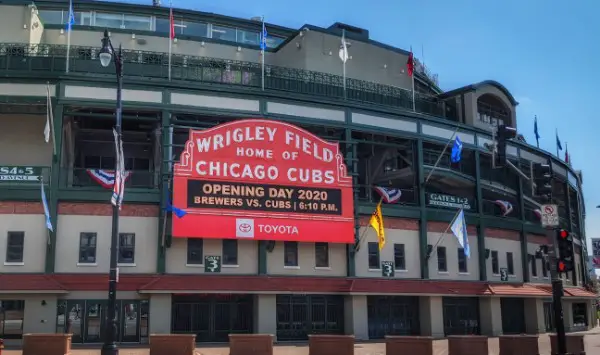
Cubs Avoid Luxury Tax, Maybe Even Bigger Penalties as MLB Payrolls Dropped by $2.5 Billion
A shortened 2020 season meant teams had to pay only a prorated portion of player salaries, roughly 40% of what players would otherwise have earned. According to information sent by MLB to teams on Friday night and subsequently obtained by the Associated Press, total payrolls dropped to $1.75 billion from what should have been $4.22 billion. Base wages for 40-man rosters were just $1.54 billion, less than half of the $3.99 billion from the previous season.
In a clear sign of cost-cutting by front offices, buyouts on unexercised 2021 options more than doubled, jumping from $26.9 million to $58.2 million. If that’s difficult to wrap your head around, consider that Jon Lester was paid a $10 million buyout rather than having his $25 million option picked up. What’s more, buyouts are considered guaranteed money and are thus calculated as part of a contract’s average annual value for the previous years of the deal.
So going back to Lester’s case, the Cubs saved $15 million in real salary this season and he doesn’t count toward their competitive balance tax figure. Speaking of which, the Cubs managed to avoid any penalties for what was still their second consecutive CBT overage.
Though they had been projected at a total payroll of around $216 million, $8 million over the line for 2020, luxury tax penalties were suspended in accordance with the league’s guidelines for the shortened season. That saved the Cubs somewhere in the neighborhood of $2.5 million in what Tom Ricketts likes to call “dead-weight loss,” though the figure would have been close to $920,000 when prorated.
The Cubs’ real savings, however, will probably never be known because the reduced payrolls and suspension of penalties meant any revenue-sharing payments were either decreased or eliminated entirely. Repeat CBT offenders are ineligible to participate in revenue sharing or to receive rebates on money paid, so the Cubs might have missed out on tens of millions had the season progressed in a normal fashion.
Even though they weren’t hit with any monetary penalties, the Cubs are still considered to have gone over and would face stiffer sanctions for signing a player who received a qualifying offer. Not that such things really matter since there’s no way in hell they’re going to target anyone who’d cost them draft picks and international pool money. Nor are they targeting anyone who’s looking for decent money over multiple years.
After being over the threshold for two consecutive seasons, the front office almost certainly has a mandate to avoid a third overage. Or, more accurately, they’ve simply got a budget that won’t allow them to get anywhere near $210 million. How far away they need to remain is really the only question and that mark may be fluid based on the coronavirus vaccine’s distribution, the length of the season, and the possibility of getting fans back to Wrigley Field as early as this summer.
While there are a lot of unknowns at this point, this latest bit of news does seem to provide more evidence to support the notion that actual losses weren’t quite as harrowing as owners have made them out to be.
